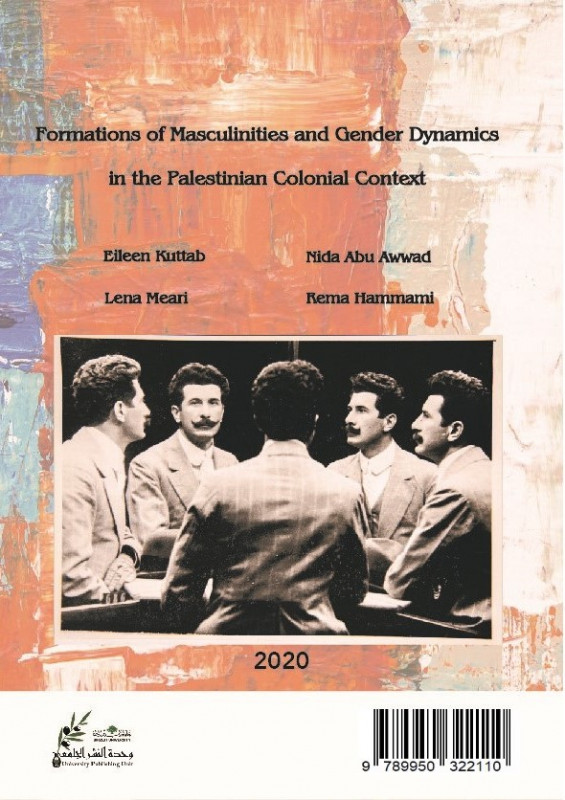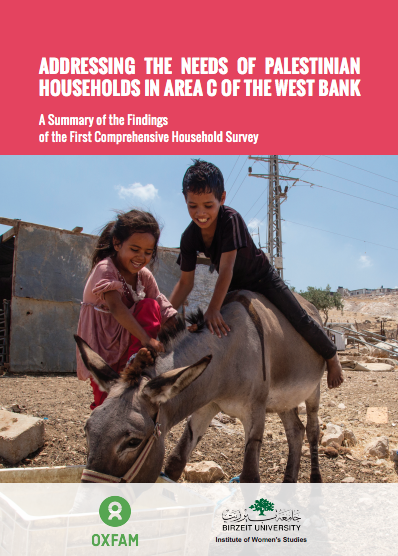Palestinian women's tactics and maneuvering in crossing the racist apartheid wall of the Zionist colonization pdf
Year: 2013
Author: Amira Hilal
Supervisor: Randa Naser
Discussion Committee: Rema Hammami & Lena Meari
Abstract
This thesis deals with the daily life of some Palestinian women who live in the area of Bethlehem, isolated by the Wall, checkpoints and crossings. These women secretly cross into the occupied City of Jerusalem by penetrating the “barbed-wire” fence which separates the City from the West Bank simply to reach their workplace. The main goal of the thesis is getting acquainted with the mechanisms that the women use to successfully enter the occupied City of Jerusalem, as well as finding out the motivations behind such an act and exposing themselves (or which exposes them) to all sorts of physical and psychological [dangers] resulting from oppression and torture practiced on regular basis by the Zionist occupation forces against the Palestinian people. Through narrating their stories, we can understand the meanings the women produce when they pursue their various activities and we can uncover the sources of power that control their subjective selves and how they deal with it as well. To achieve this goal, a qualitative research methodology was used, by getting involved through direct and constant participation in the community of these women who enter secretly the occupied City of Jerusalem, by conducting in-depth interviews, having group discussions and visiting with them, as well as getting the personal experience of the process of going through the crossing in clandestine ways with a group of them in order to have a real in-depth understanding of the experience of this process. The study sample was selected with the help of individuals highly trusted by these women and through the women themselves, until the information needed for the research started snowballing. The sample selection also took into consideration the variation in the residential distribution of the women. The research showed that the procedures the women follow to make their secret crossing into the occupied City of Jerusalem a successful process are a form of resistance against the Zionist occupation and against the Palestinian patriarchal society; yet, at the same time, the process can be understood as an escape from their social reality and a sort of entertainment for themselves, or some sort of self gratification.
Referring to researches that dealt with the concepts of daily life and resistance in communities different from the study community of this research showed different meanings for the concept of resistance.
In spite of the fact that the women’s involvement in the labor market was initially motivated by the economic factor, the meaning of their involvement in labor was transformed into a political meaning representing itself in the emergence of the idea of political resistance. While these women seeking to sell their vegetables or to work in cleaning does not show that the activities practiced involve any political resistance, the meaning implied in the whole process and embodying it is never yielding to the occupation strategies as well as the presence of checkpoints and the smothering Apartheid wall which prevent Palestinians from existing on their land which the occupation forces had stolen from them without legal accountability on either the national or international levels.
In addition to that, the meaning was transformed into a social one, challenging the patriarchal power relations and control that limit the movement and behavior of women. In this regard, the study showed that each of the women has to deal with the powers of social relations within her own conditions and capacities. The women’s activities can also be considered a source of pleasure for the women themselves because, through their work in the occupied City of Jerusalem, these women escape from their communities which constrain their behavior and movements and embark upon a different world, where they find self-recognition and freedom from their societies and responsibilities, albeit for a few hours.
Download




